Table of Contents
Coordinate clauses are parts of a sentence that are joined using words like and, but, or so. Each part is a complete sentence on its own. These clauses help us combine ideas, show contrast, or explain a reason or result, making our writing clearer and more interesting.
What is a Coordinate Clause?
A coordinate clause is an independent clause that is joined to another independent clause using a coordinating conjunction like and, but, or, so, nor, for, yet. Both clauses have equal importance and can stand alone as complete sentences.
- I like tea, but she prefers coffee.
- He studied hard, so he passed the exam.
- You can call me, or you can send an email.
Common Coordinating Conjunctions (FANBOYS)
| Conjunction | Function | Example |
|---|---|---|
| For | Explains a reason | She stayed home, for she was feeling unwell. |
| And | Adds information | I bought apples, and she bought oranges. |
| Nor | Adds a negative alternative | He doesn’t like tea, nor does he like coffee. |
| But | Shows contrast | I wanted to go, but it started raining. |
| Or | Shows a choice | You can take the bus, or you can walk. |
| Yet | Shows an unexpected outcome | She was tired, yet she kept working. |
| So | Shows a result | He missed the bus, so he arrived late. |
Why Use Coordinate Clauses?
Coordinate clauses are used in writing and speech to:
1. Combine Ideas:
They link two equally important ideas, creating smoother, more concise sentences.
- She likes coffee, and he prefers tea.
2. Show Relationships:
Coordinating conjunctions (and, but, or, so, yet, for, nor) clarify the relationship between ideas, whether it’s addition (and), contrast (but), or cause-effect (so).
3. Improve Sentence Flow:
They avoid repetitive sentence structures by combining thoughts into one cohesive statement.
4. Emphasize Equal Importance:
Both clauses hold independent value, helping maintain balance in the sentence.
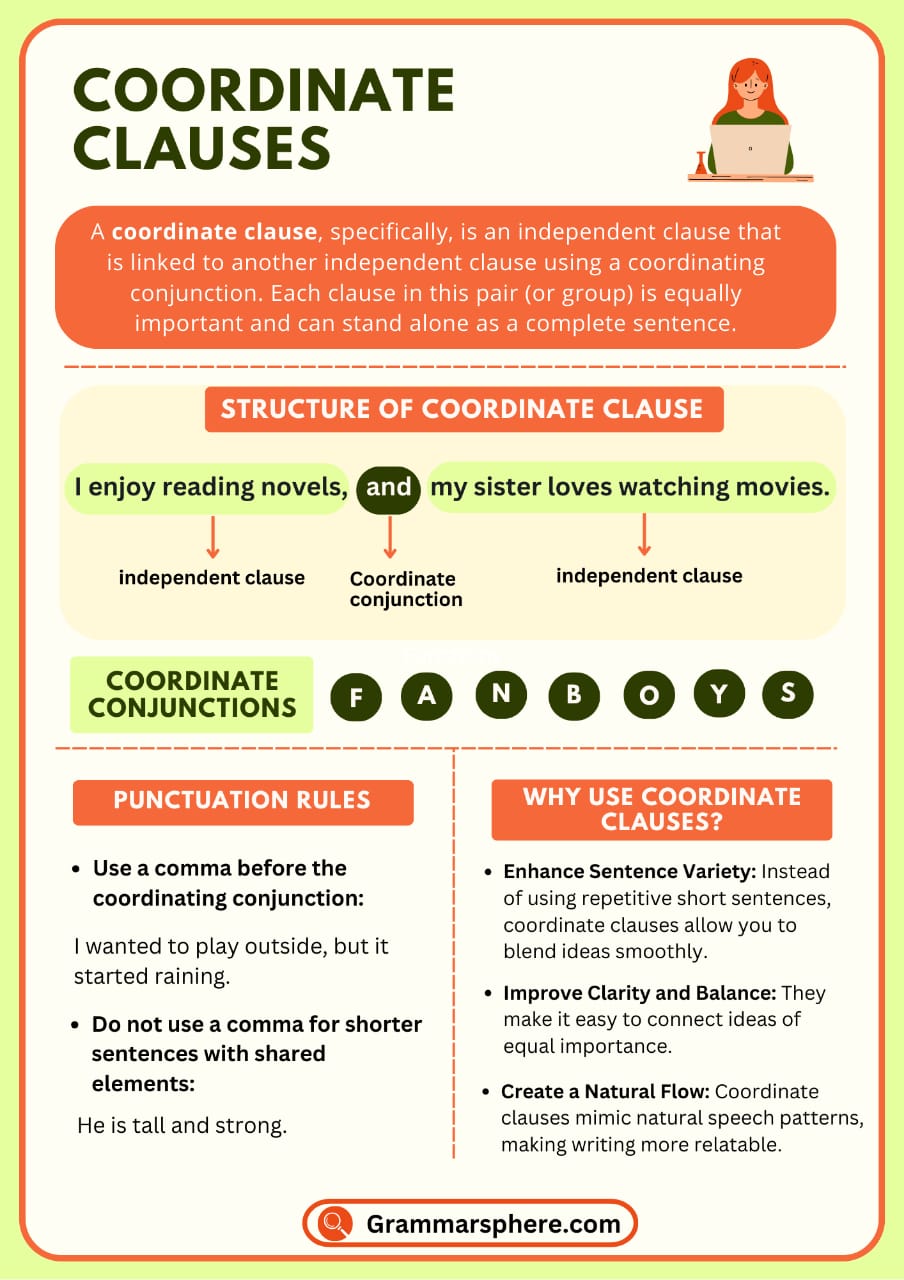
Coordinate vs Subordinate Clause
Coordinate Clause:
A coordinate clause is an independent clause joined to another independent clause using a coordinating conjunction such as and, but, or, so, nor, for, yet. Both clauses are equal in importance and can stand alone as sentences.
- I wanted to go out, but it started raining.
Subordinate Clause:
A subordinate clause is a dependent clause that cannot stand alone. It relies on a main clause to complete its meaning and is introduced by subordinating conjunctions like because, although, if, when, since, while.
- I stayed home because it was raining.
Key Difference:
Coordinate clauses are independent and equally important, while subordinate clauses are dependent and provide extra information to the main clause.
Examples of Coordinate Clause
- I wanted to play, but it started raining.
- She enjoys painting, and he loves photography.
- You can call me, or you can send a message.
- He was hungry, yet he skipped dinner.
- They missed the train, so they took a taxi.
- She doesn’t like chocolate, nor does she enjoy candies.
- I wanted to sleep, but the noise kept me awake.
- We visited the museum, and we explored the park afterward.
- You should study now, or you might fail the exam.
- The weather was cold, yet they went for a hike.
FAQS about Coordinate Clause
What is a coordinate clause?
A coordinate clause is an independent clause that is of equal importance to another clause in the same sentence. They are connected using coordinating conjunctions such as and, but, or, so, etc.
For example:
She wanted to go to the beach, but it started raining.
How do coordinate clauses differ from subordinate clauses?
Coordinate clauses can stand alone as complete sentences, while subordinate clauses cannot. Subordinate clauses depend on a main clause to give them full meaning.
For instance:
Coordinate clause: I wanted to leave, and he agreed.
Subordinate clause: Because I was tired, I wanted to leave.
What are some common coordinating conjunctions used in coordinate clauses?
he most frequently used coordinating conjunctions are summarized by the acronym FANBOYS:
For, And, Nor, But, Or, Yet, So. These conjunctions help establish relationships between ideas, such as contrast (but), addition (and), or cause-effect (so)
You May Also Like

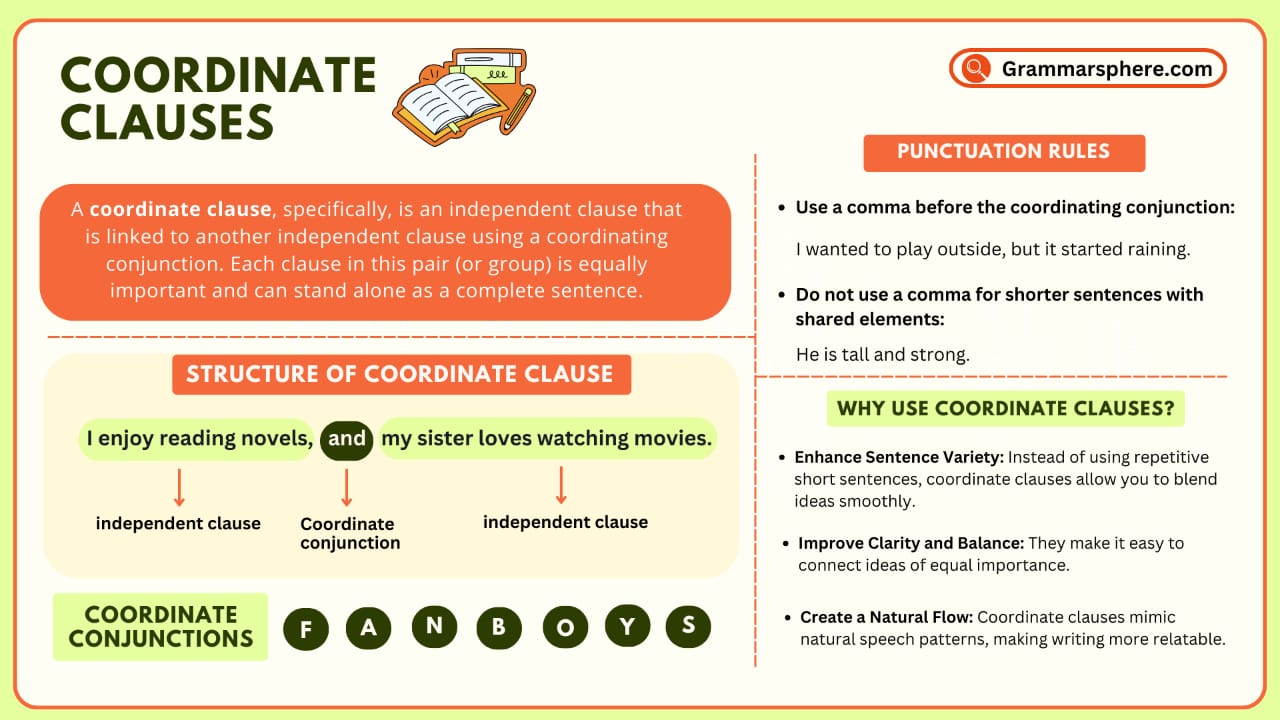
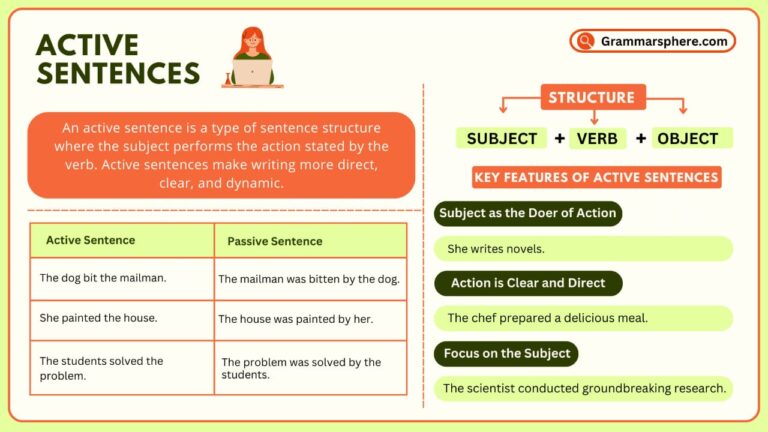
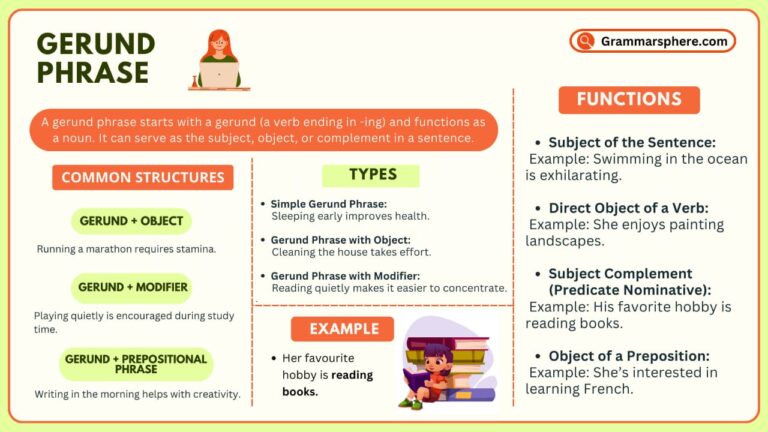
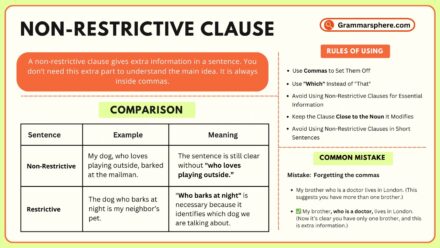
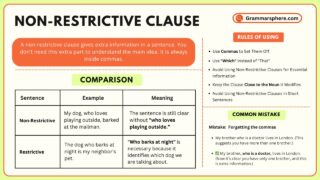
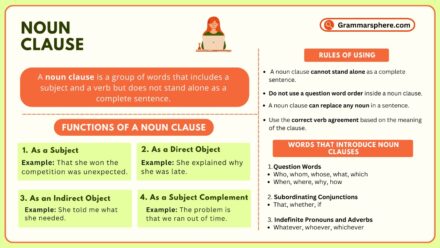
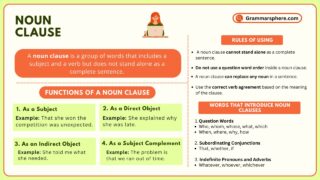
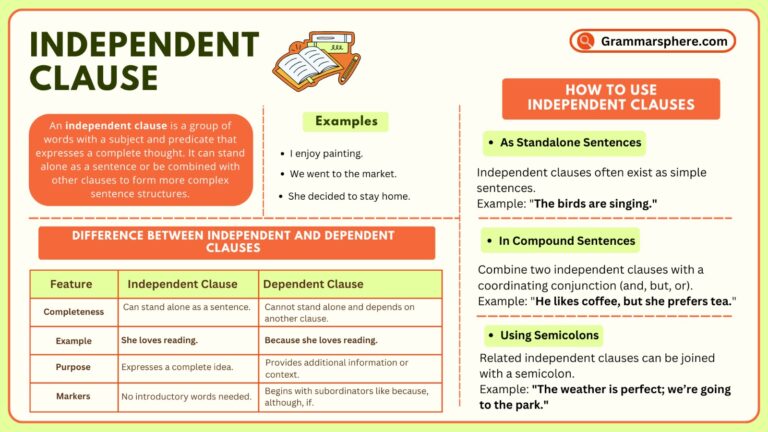
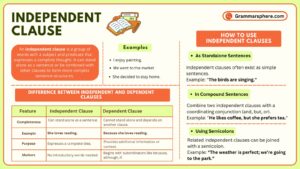
Leave a Comment